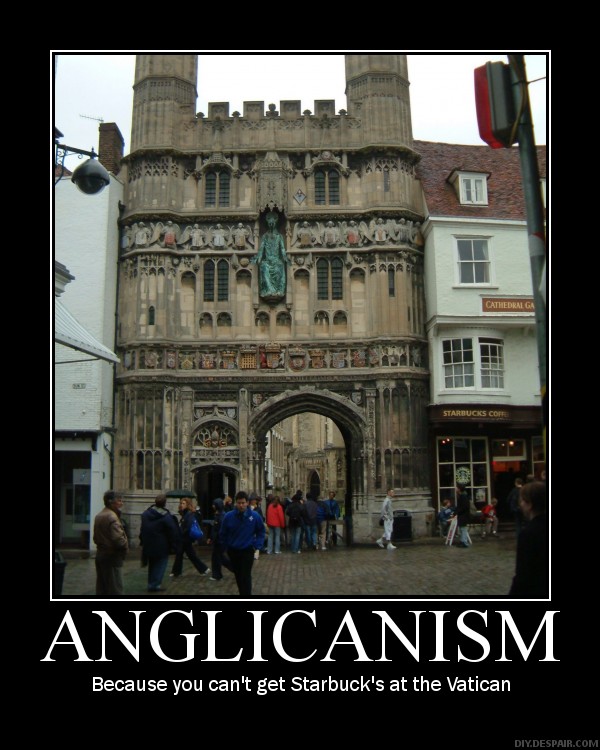 Over at Learning in the Grip of Grace, Hans Kristensen has a post on Why I’m Not an Anglican. He is an ex-Anglican who clearly favors a baptist independent church set up. He raises three arguments against the Anglican way. I have somecomments to make in reply.
Over at Learning in the Grip of Grace, Hans Kristensen has a post on Why I’m Not an Anglican. He is an ex-Anglican who clearly favors a baptist independent church set up. He raises three arguments against the Anglican way. I have somecomments to make in reply.
1. Evangelical Anglicans are compromised because of their affiliations
I thought that was an odd criticism. For a start, 80% of the World Anglican Communion is pretty much orthodox and evangelical. It is only a dying and residual portion in the west that are liberal. On top of that, if the church is an ecclesia mixta (mixed church of true and false believers – read Hebrews 6 if you don’t believe me), then you will always have to contend with false teaching and false brothers in the church. Is there any denomination that is utterly “pure” in their affiliations? I mean, read 1-2 Corinthians, it’s always been this way! In fact, in some independent churches you’ll find more fruitcakes than a Christmas party and more nuts than Brazil precisely because they don’t belong to any association to whom they are accountable. Also, I have a big problem with the current rage of abandoning our denominations to establish independent evangelical churches. It is called “catholicity”. Christians have always confessed that they believe in “one holy catholic and apostolic church”. Now if catholicity were a crime, i.e., belonging to the wider body of Christ, there would not be a shred of evidence to convict most independent churches? It is gonna take more than attending T4G and GC to convince me that these independent folks believe in the Church. As my friend Michael Jensen said our evangelical software needs to run on some ecclesiastical hardware. Ecclesiology is not the dispensable wrapping paper for our evangelical theology. Independent churches like to retreat to the idea of “spiritual unity” to justify their disinterest in Christian unity. The problem is that the NT calls us to express our invisible unity through visible ways like participating in a common mission, prayer, eucharist, sharing resources, and mutual interest in each other’s affairs.
2. Infant Baptism
Yeah, a lot could be said here and I’ve blogged on this elsewhere. Let me just ask this one point: If the new covenant is the eschatological fulfilment of the Abrahamic covenant, and if the Abrahamic covenant had a place for children in it, how much more so should the new covenant have a place for children? Also, if covenant and family go together like cheese and wine, then children have a place in the new covenant.
3. Church Government
My view is that the most important ingredient in church government is not the structure but the character and giftedness of the people in charge. Now I can grant the plurality of elders in the NT (e.g., Acts 14:23). But I’d point out: (1) Elders were often appointed externally by the apostles; (2) certain “episcopal” leaders appear to have emerged precisely from within the eldership of given churches to be a specific leader over an area as first among equals, for case in point, James in Jerusalem and Ignatius in Syrian Antioch; and (3) Acts 15 is a pretty good example of one church (Antioch) subordinate to another one (Jerusalem) and seeking permission for its current missionary strategy – Antioch was not an independent church.











